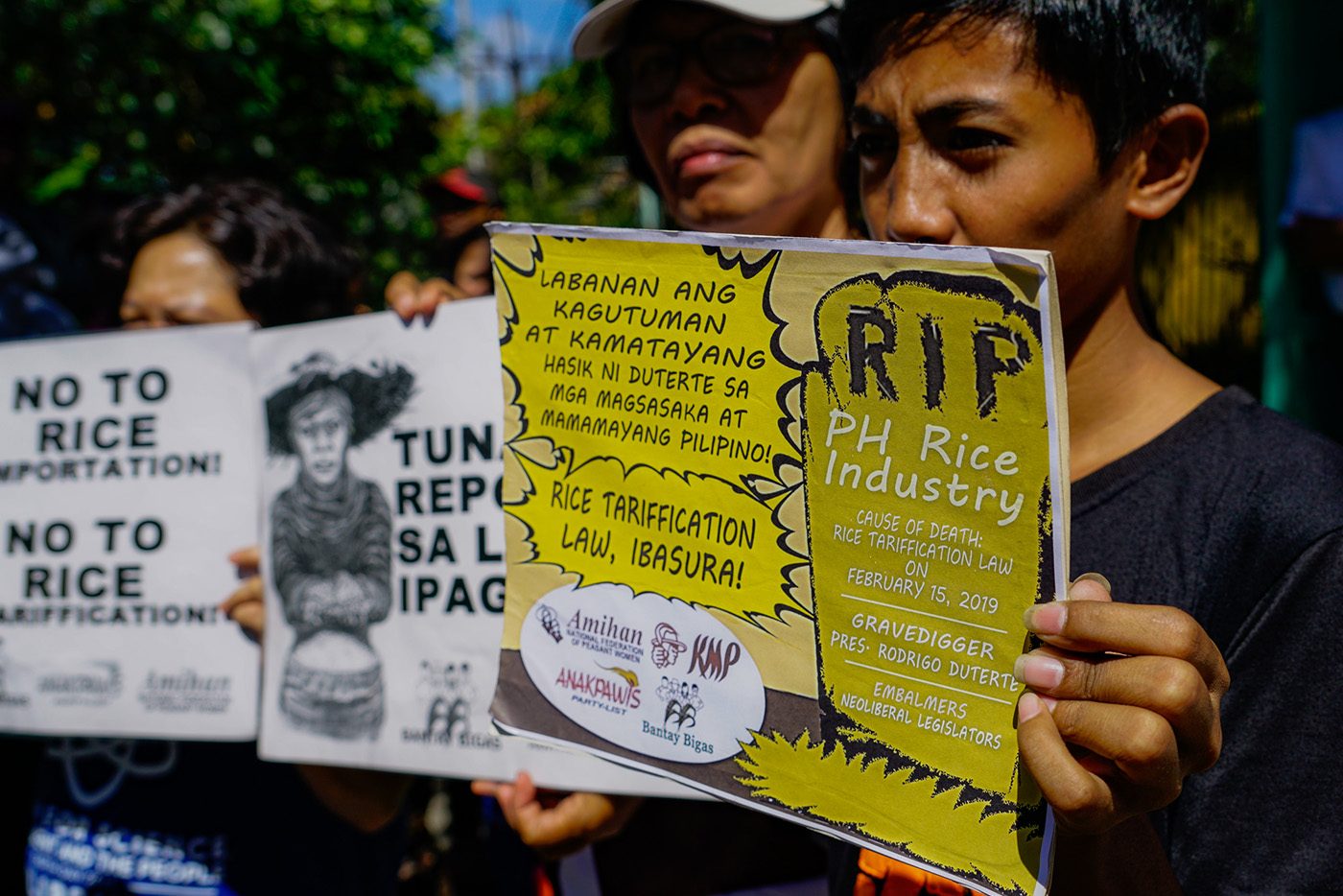SUMMARY
This is AI generated summarization, which may have errors. For context, always refer to the full article.

MANILA, Philippines – Rice stakeholders expressed frustration with what they say is the lack of safeguards in the rice tariffication law, hours before the implementing rules and regulations (IRR) of the measure was set to be signed.
In a press conference on Tuesday, March 5, Federation of Free Farmers president Raul Montemayor said the law has loopholes which the government has not been able to answer. (READ: Duterte signs rice tariffication law)
Montemayor was also present during the government’s consultations with rice stakeholders last week to aid the drafting of the IRR, which they also found problematic.
“What came out was that they don’t have a plan, they don’t know what to do. The best answer came from NEDA (National Economic and Development Authority) – they said they will still study it,” Montemayor said in Filipino.
“The what-if scenarios aren’t clear yet. The law isn’t well-thought-out. They just wanted to bring in more rice to lower the inflation rate. They’re just thinking about it now.”
Among the questions raised by the stakeholders were the ability of President Rodrigo Duterte to use his powers to adjust the tariff in case too much or too little rice is coming into the market, and the capability of the National Food Authority (NFA) to buy palay and sell cheap rice.
As the NFA also loses its regulatory powers starting Tuesday, Montemayor questioned how else could the rice industry be protected from the influx of rice imports or smuggling.
While the IRR can provide more details of the law’s implementation, the stakeholders are concerned that it will still be limited by the law.
Agriculture Secretary Emmanuel Piñol told reporters on Monday, March 4, that they have taken the rice stakeholders’ comments into consideration for the drafting of the IRR.
So far, Piñol said they are still eyeing to raise the NFA’s buffer stock so it would last more than 30 days. Duterte said last year that the country should have enough buffer stock for 60 days. (READ: Filipino farmers urged to sell their palay to NFA)
Aside from this, the Department of Agriculture can still extend partial regulatory powers through the Price Act.
However, the final contents of the IRR will still depend on NEDA. – Rappler.com
Add a comment
How does this make you feel?
There are no comments yet. Add your comment to start the conversation.